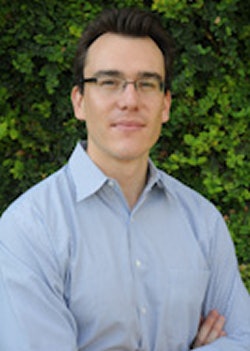It’s been said that public higher education has been the way for the common man (and woman) to excel in uncommon ways.
But when states cut funding to these places of higher learning, the basic character of these so-called “flagship” institutions change.
 UCLA professor Ozan Jaquette
UCLA professor Ozan JaquetteInstead of offering education for the best and brightest among the talented masses, such schools shift their focus to a more well-heeled elite.
These are out-of-state students and their parents who can afford to pay “full-freight.”
More than likely, these students aren’t from underserved minority communities in need.
What happens to the in-state students from poorer communities? They’re displaced. Shut out. More and more, the reachable and affordable bargain of a premier state university is no longer available to these students, who are the most deserving in the state.
According to a Cooke Foundation study by UCLA professor Ozan Jaquette, at 24 public flagship universities in the U.S., out-of-state students are half of the freshman class. At 11 schools, these out-of-state students account for half of all freshmen. Most of the time, the study found these students had lower grades and scores, and they were accommodated simply because families could afford to pay 2-3 times the standard admission. The study called these schools “crass moneymaking operations” that “prioritize the rich kids from out of state” who don’t need financial need.
Here’s the dishonor roll of the majority out-of-state freshman schools:
University of Vermont, University of Delaware, University of Alabama, North Dakota State University-Main Campus, University of New Hampshire, University of Rhode Island, University of Mississippi, West Virginia University, University of Oregon, University of Iowa, and University of South Carolina-Columbia.
To be fair, for these schools, it may simply be a matter of staying afloat financially.
The study found that for every 10 percent cut in state funding, it triggered a need for a 5 percent increase in out-of-state students.
So what happens to the smart, but underfunded students of color shut out of the top state school?
Do they get into Harvard? Not necessarily.
As private schools endowments grow, their admissions become even more selective and competitive. And overall, private schools just don’t accommodate as many students as a big public flagship like a UC Berkeley.
The study said only 626,000 of the 23.6 million undergrads in the nation attended select schools. Compare that to 2.6 million attending public flagships universities.
When more rich kids start taking up space in class, the promise of upward mobility through an affordable college education is lost.
Does it matter? Only if you care about fixing the 1 percent / 99 percent dynamic that hangs over our society today.
Education is one way to defeat social inequality. But according to the Cooke Foundation, these flagship schools are hit by budget cuts and end up adding to the problem by “becoming instruments of social stratification.”
That sounds ominous, from a class perspective.
From a race perspective, it can get pretty bad fast when schools favor international students from rich families, who can pay top dollar.
The rich international Asian from Beijing displacing the smart kid from New York City’s Chinatown is a disgrace.
So is the rich European, Latin American, or European, who takes a spot from a deserving American kid.
It’s a different kind of diversity from the kind many of us have long advocated and imagined.
But that seems to be happening more and more in higher ed, according to the Cooke Foundation study.
Unfortunately, when state legislators slash education budgets, a much deeper problem is created when schools feel forced to give opportunities to the out-of-state rich, and not the underserved in their own state.
Emil Guillermo is a journalist and commentator. He writes of the civil rights organization, AALDEF at https://www.aaldef.org/blog/



















